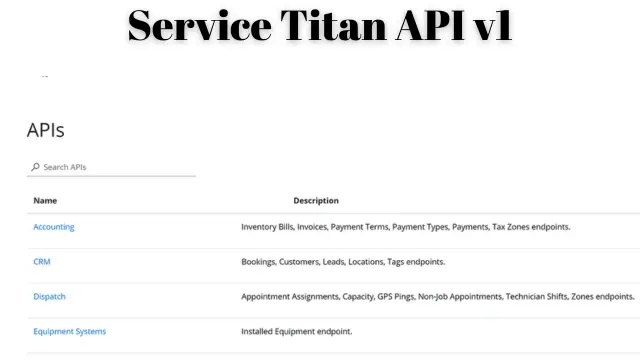Supply Allocation NetSuite – Guidelines
Supply Allocation NetSuite – Guidelines: Optimizing Inventory Management and Order Fulfillment
Introduction
In the dynamic world of supply chain management, efficient allocation of resources is crucial for businesses to meet customer demand, minimize costs, and maximize profitability. Netsuite, a leading cloud-based ERP solution, offers a powerful tool called supply allocation to help businesses achieve these objectives. This article explores the concept of supply allocation in Netsuite, its benefits, how it works, key features, implementation best practices, and the challenges it addresses.
What is Supply Allocation in Netsuite?
Supply Allocation NetSuite refers to the process of strategically distributing available inventory and resources to fulfill customer orders while optimizing inventory levels, reducing stockouts, and maintaining service levels. It involves a systematic approach to match demand with supply, taking into account various factors such as order priorities, inventory availability, and supply chain constraints.

Benefits of Supply Allocation in Netsuite
Supply allocation in Netsuite brings several benefits to businesses, enabling them to streamline their operations and deliver a superior customer experience.
Improved Inventory Management
By implementing Supply Allocation NetSuite, businesses gain better control over their inventory. The system allows them to allocate inventory based on predefined rules and priorities, reducing the risk of overstocking or understocking. This optimization of inventory levels leads to cost savings and improved cash flow.
Increased Efficiency in Order Fulfillment
With supply allocation, businesses can allocate inventory based on order priorities, ensuring that critical orders are fulfilled promptly. By streamlining the order fulfillment process, businesses can enhance customer satisfaction and strengthen their relationships.
Optimized Resource Allocation
Supply Allocation NetSuite helps businesses make informed opinions about resource allocation. By considering factors similar to product capacity, transportation constraints, and supplier capabilities, businesses can allocate coffers efficiently, minimizing backups and detainments in the force chain.
How Supply Allocation Works in Netsuite
The process of force allocation in Netsuite involves several crucial ways that ensure effective and effective distribution of force
Demand Planning and soothsaying
To initiate the force allocation process, Netsuite utilizes demand planning and soothsaying ways. By assaying literal deals data, request trends, and client demand patterns, businesses can induce accurate vaticinations for unborn demand. This information serves as the foundation for force allocation opinions.
force Allocation Rules
Netsuite allows businesses to define specific rules and criteria for force allocation. These rules can be grounded on colorful factors similar to client precedence, product characteristics, geographical locales, or specific business conditions. By configuring allocation rules, businesses can insure that force is distributed according to their specific precedences and objects.
Allocation prosecution
Once the demand planning and allocation rules are established, Netsuite’s force allocation machine executes the allocation process automatically. The system considers the available force, the defined rules, and the demanding cast to determine how to allocate force across different orders and guests. This robotization eliminates the need for homemade intervention and reduces the chances of crimes or inconsistencies.
crucial Features of Netsuite’s Supply Allocation
Netsuite’s force allocation module offers several features that contribute to its effectiveness and usability
Real-time Visibility
Netsuite provides real-time visibility into force situations, order status, and allocation processes. This allows businesses to cover and track the progress of force allocation, enabling timely adaptations and visionary decision- timber.
Flexible Allocation Strategies
Netsuite allows businesses to apply colorful allocation strategies grounded on their unique conditions. Whether it’s first-come, first-served allocation, precedence-grounded allocation, or dynamic allocation grounded on changing demand patterns, Netsuite offers the inflexibility to acclimatize to different business scripts.
Integration with Other Netsuite Modules
Netsuite’s force allocation seamlessly integrates with other modules similar as order operation, force operation, and demand planning. This integration ensures data thickness, eliminates silos and enables end-to-end visibility and control over the entire force chain process.
Stylish Practices for Implementing Supply Allocation in Netsuite
While enforcing force Supply Allocation NetSuitee, businesses can follow these stylish practices to maximize its benefits
Define Clear Allocation Rules
It’s pivotal to establish clear and well-defined allocation rules that align with business objectives. By easily outlining precedences, constraints, and considerations, businesses can optimize the allocation process and avoid nebulosity.
Continuously Cover and Acclimate
force allocation is an iterative process that requires nonstop monitoring and adaptation. By assaying allocation results, tracking performance criteria, and incorporating feedback, businesses can OK-tune their allocation strategies to ameliorate effectiveness and effectiveness.
unite with Suppliers and guests
Effective force allocation involves collaboration with suppliers and guests. By participating in applicable information, coordinating lead times, and aligning prospects, businesses can insure smooth and flawless force chain operations.
Challenges and Results in Supply Allocation
enforcing force Supply Allocation NetSuite may come with certain challenges. still, Netsuite offers results to address these challenges
Data Accuracy and Integrity
force allocation relies heavily on accurate and dependable data. Netsuite provides data confirmation mechanisms, data sanctification tools, and integration capabilities to insure the delicacy and integrity of the data used for allocation opinions.
Demand Volatility
Fluctuations in demand can pose challenges to supply allocation. Netsuite’s demand planning module utilizes advanced forecasting techniques and statistical algorithms to mitigate the impact of demand volatility, allowing businesses to adapt quickly and make informed allocation decisions.
Supply Chain Disruptions
Unforeseen disruptions in the supply chain, such as natural disasters or transportation delays, can disrupt supply allocation. Netsuite’s supply chain management capabilities, including real-time visibility and collaboration tools, help businesses respond and recover from such disruptions more efficiently.
Conclusion
In today’s competitive business landscape, effective supply allocation plays a vital role in optimizing inventory management, enhancing order fulfillment efficiency, and improving overall customer satisfaction. Netsuite’s robust supply allocation capabilities enable businesses to achieve these objectives by automating the allocation process, providing real-time visibility, and offering flexible allocation strategies.
By leveraging Netsuite’s demand planning and forecasting features, businesses can accurately predict customer demand and align their allocation decisions accordingly. The ability to define allocation rules based on priorities, constraints, and business objectives ensures that inventory is allocated optimally.
Implementing supply allocation in Netsuite requires careful planning and adherence to best practices. Clear allocation rules, continuous monitoring, Supply Allocation NetSuite Band collaboration with suppliers and customers are key factors for success. Netsuite’s integration with other modules and its ability to address challenges such as data accuracy and supply chain disruptions make it a powerful tool for businesses seeking to streamline their supply chain operations.
FAQs
1. What is the role of demand planning in supply allocation?
Demand planning in supply allocation involves analyzing historical sales data and market trends to forecast future demand accurately. This forecast serves as the basis for allocating inventory to meet customer orders effectively.
2. Can supply allocation be automated in Netsuite?
Yes, Supply Allocation NetSuite automates the supply allocation process by utilizing predefined allocation rules and demand forecasts. This automation eliminates manual intervention and ensures efficient and consistent allocation decisions.
3. How does supply allocation contribute to customer satisfaction?
Supply allocation ensures that customer orders are fulfilled promptly and accurately. By optimizing inventory levels, businesses can minimize stockouts and delays, leading to improved customer satisfaction and loyalty.
4. Is Netsuite’s supply allocation suitable for small businesses?
Yes, Netsuite’s supply allocation capabilities are scalable and can be tailored to the needs of small businesses. It provides flexibility in defining allocation rules and can adapt to changing business requirements.
5. What are some alternatives to Netsuite for supply allocation?
Some alternatives to Supply Allocation NetSuite include SAP ERP, Oracle NetSuite, Microsoft Dynamics 365, and Infor SCM. Each solution offers its unique features and capabilities, and businesses should evaluate their specific requirements before choosing the most suitable option.





